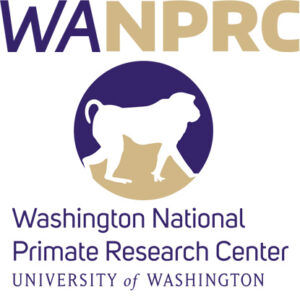Applications are closed for this year – Thank you

The Pilot Program at the Washington National Primate Research Center (WaNPRC) provides specialized research facilities, expertise and limited support to investigators
2025 Ignition Awardees
The ignition pilot awards program funds the generation of preliminary data or results necessary to apply for support from funding sources such as NIH R01 grants. Pilot projects are aimed at helping solve problems related to human health and should lead to independent grant support related to the disease or health problem being studied. At least one-half of funded pilot projects over the award period must involve the active participation of investigators external to the WaNPRC. A part of the funded pilot projects also involves non-tenured early-stage investigators. Projects from early-stage scientists are given priority in the selection process.
Rafaela da Silva, PhD, a postdoctoral researcher in Dr Jon P. Boyle’s laboratory at the University of Pittsburgh, has been selected to receive a 2025 Ignition Pilot Award.
Dr da Silva is an early-stage investigator whose pilot project will explore congenital toxoplasmosis, caused by a parasite called Toxoplasma gondii, which can cause serious problems for unborn babies. Studying how this infection is passed from mother to baby in humans is difficult due to ethical and scientific challenges. However, researchers can use nonhuman primates to study this, since their placentas are similar to those of humans. In this study, pregnant pigtail macaques will be used to model the disease. Researchers will monitor the animals’ infections through blood tests and amniocentesis (taking fluid from around the fetus) and will collect tissue from the babies and placentas. The researchers will then examine tissues to study how the parasite affects the baby and the immune system. This model will help researchers better understand congenital toxoplasmosis and could lead to new ways to prevent and treat this parasitic infection in the future.
Hans-Peter Kiem, MD, PhD, is a principal investigator at Fred Hutch and is chief of WaNPRC’s Gene Therapy and Regenerative Medicine unit. He and his graduate student, Nick Petty, were selected to receive a 2025 Ignition Pilot Award to examine the use of stem cells as a treatment for Alzheimer’s Disease.
Alzheimer’s disease (AD) is a devastating brain disorder marked by the buildup of harmful proteins called amyloid beta (Aβ) plaques and Tau clusters. Although many clinical trials have tested treatments targeting these proteins, none have significantly slowed the disease. Some researchers have explored a new approach: replacing damaged brain cells called microglia with healthy ones from blood stem cells. In mouse models, this has helped reduce symptoms and brain damage. One team developed a method that uses stem cell transplant to almost completely replace the microglia, which has shown great promise. While this approach has worked in humans and primates, the replacement rate has been much lower. Dr Kiem’s lab hopes that using a specific drug to deplete microglia before the transplant might result in better success in nonhuman primates. This pilot study will test whether this method is safe and effective in monkeys, helping to decide if it could be a potential treatment for Alzheimer’s and other human brain diseases.